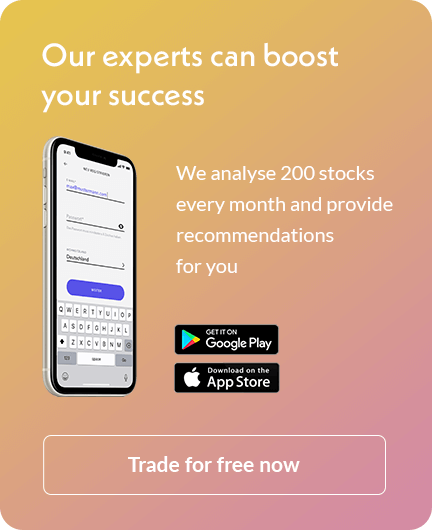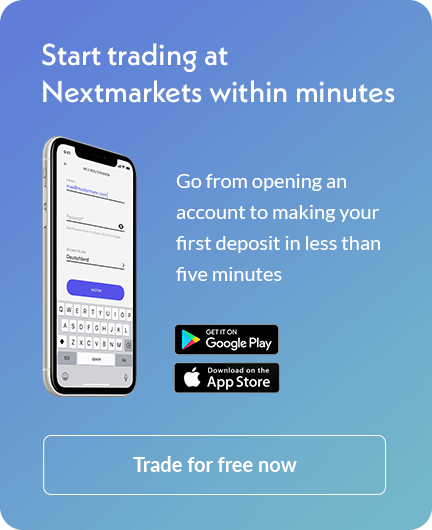What is bitcoin? Learn more about this cryptocurrency
Still in its infancy, Bitcoin has solidified itself as the market leader, becoming the first cryptocurrency to be accepted as a legitimate payment method.
Our experts have pieced together a review of the world’s largest cryptocurrency, offering you the chance to gain industry insight into its pros and cons. Uncover the history, take a look at who is backing Bitcoin in the present, and become a part of its future as we show you how to trade Bitcoin CFDs online.

The world's largest cryptocurrency
One of the top buzzwords in the financial world currently is Bitcoin. Often abbreviated to BTC, Bitcoin is the first and currently largest cryptocurrency offering in the world.
Cryptocurrencies differ from regular currencies, such as GBP or USD, as they are not physical items. Although BTC is not a printed currency, it still holds a serious amount of value and Bitcoin holders will need to use a wallet (discussed later in this review) as they would for their GBP, USD or EUR etc. The smallest unit of a Bitcoin is called a Satoshi, valued at 0.00000001 or one hundred millionth of a BTC, allowing for microtransactions to be performed – something traditional currencies cannot compete with.
When discussing the world’s largest cryptocurrency, it is important to understand the difference between Bitcoin the currency and Bitcoin the protocol.
When referring to Bitcoin as a currency, we view BTC as a token of value that can be transferred between accounts from one wallet to another. Bitcoin the protocol has a completely different meaning and refers to a distributed ledger that itemises and maintains all transactions sent peer to peer.
You will often hear Bitcoin associated with a decentralised platform. This means that no central banking system or governing body oversees the transactions, removing third-party fees and allowing for a straightforward peer to peer transaction to take place. The network is kept running safely and securely by a group of miners, and an open network of computers from around the world, who are rewarded for their efforts in BTC when approving and confirming Bitcoin transactions.
We are slowly seeing Bitcoin become a legitimate real-world payment method, particularly in the US. Bitcoin holders can purchase items such as meals, jewellery and even cars.
The history of Bitcoin
It all began in 2008, where Reddit saw a paper called “Bitcoin – A Peer to Peer Electronic Cash System” posted to one of its discussion boards on cryptography by Satoshi Nakamoto. A year later, the BTC software was made available to the public, and mining began.
As interest started to surround the cryptocurrency and market traders began to question, “What is Bitcoin?” We started to see competitors join the market. With many scare-mongers advising not to buy cryptocurrency, and fears circulating Bitcoin being a scam, we saw a huge crash/dip in the Bitcoin market, seeing the price fall from $1000 to $300 in 2013.
We saw Bitcoin rise from strength to strength throughout 2017 & 2018, surpassing $10,000 and creating the first real buzz outside of the trading world. Non-traders began to review the Bitcoin whitepaper, open up trading accounts and looked to buy Bitcoin too – with prices rising so rapidly, the fear of missing out was too great to ignore. Around this time, BTC also split into Bitcoin Cash (BCH). The real world began to knock on Bitcoin’s door, and the need for a larger volume of transactions to be processed per second increased too.
Recent developments
2019 saw the first Bitcoin ATMs distributed worldwide, and in 2020, PayPal announced that users were now able to buy Bitcoin on its platform. An announcement from such a prestigious site saw yet another spike in BTC’s history, surpassing the $28,000 mark.
Elon Musk & Tesla announced the acceptance of payments in early 2021, cementing the real-world value of BTC. Again, the news created a positive movement in the market, and we have since seen the world’s leading cryptocurrency advance beyond the $60,000 mark.
Bitcoin and beyond
Next in our, “What is Bitcoin?” review, we look to highlight some of the cryptocurrency’s biggest milestones to date and offer expert analysis of where this coin could go.
We have to head back to 2009 to see the first key milestone for Bitcoin – The first block was mined, referred to now as the Genesis block. Launched in 2014, Bitcoin XT became the first notable hard fork of Bitcoin. Bitcoin XT allowed for 17 extra transactions per second; however, after six months of success, Bitcoin XT lost user interest and momentum. In turn, this led to the creation of the Bitcoin Classic. Unfortunately, Bitcoin Classic followed a similar route as XT.
Segregated Witness (SegWit), an idea presented by Peter Wuille, was implemented in 2017. The initial idea was introduced in 2015 and refers to the process of increasing the block size limit by removing signature data from all Bitcoin transactions. In turn, this creates a faster network allowing for a block size 4x the size. Bitcoin Cash also came into fruition in 2017 and is currently the fourth-largest digital currency by market cap. Its popularity stems from the ability to execute a transaction at a greater speed than most international banks, with minimal fees incurred.
Bitcoin has overcome plenty of adversity in its short life span, helped along the way by backing from business giants such as Elon Musk, have cemented its real-world need and current status.
2021 sees Bitcoin make up the majority of most trader’s portfolios and, despite its current value, we still see the potential for growth. It appears we aren’t the only ones who are fans of the BTC movement – JP Morgan, one of the world’s largest investment banks, also commented that Bitcoin could eventually hit $146,000. It’s safe to say the future looks bright for Bitcoin – it’s come a long way since a gentleman bought two pizzas for 10,000 Bitcoins over a decade ago!
Security, features & use cases
Over the years, the Bitcoin use case has certainly expanded from just acting as a form of digital cash. Lending has now become one of the most important applications associated with the popular cryptocurrency, allowing users to obtain a fiat loan in exchange for locking up crypto assets.
Alongside lending, the market’s sheer volatility has allowed day traders to capitalise on huge peaks and dips. Although BTC has been on a steady incline over recent months, the journey there has been far from a straight line.
From a security standpoint, owners of Bitcoin store their BTC’s in an exchange directly or in their crypto wallets. These wallets can be kept online or offline and are only accessible by the use of private keys stored by the owner. However, if the owner does not use any password/key protection, wallets can be easily accessed, lost or completely stolen.
For those living in countries with a less secure financial system or political unrest, there is a growing interest in Bitcoin and particularly the ability to have complete control of your assets. The accessibility of Bitcoin offers a financial service that can be accessed through a smartphone alone, allowing users to send, receive and make transactions, providing they can access WiFi.
The crypto-gambling industry is benefiting from increased interest too. New online casinos are popping up left, right and centre to capitalise on peer-to-peer gambling, allowing users to bet their Bitcoin and receive their winnings instantaneously. One perk to gambling on the blockchain is that a transaction is unable to be altered. This means, regardless of the best outcome, you cannot be cheated out of your winnings.
Of course, the original use case of Bitcoin was a form of digital currency, and this is still very much BTC’s main purpose. Before the acceptance of Tesla, we had already begun to see a whole host of services and goods accepting cryptocurrency as a legitimate form of payment, including musicians, Microsoft and Expedia.
How do I store my Bitcoin?
We trust by this point we have answered the question – What is Bitcoin? Now, we look to advise you how best to store it.
When buying Bitcoin (mentioned next in our What is Bitcoin? review), you have the option of storing your asset within an exchange or removing your asset and storing it yourself in a wallet. Below, we itemise a few different types of wallet available, with the aim of helping you identify the most appropriate for you.
Desktop or mobile wallet
The first type of wallet we will cover is the desktop/mobile wallet. Generally, these wallets are free and easy to set up. When looking to deposit, withdraw, transfer or exchange your funds with a broker or trading platform, you will have the ability to do so in a speedy fashion as your desktop/mobile wallet is already connected to the internet.
However, one drawback of the desktop wallet is its security. Due to the nature of the internet and the real threats attached to it, hackers will have an easier time accessing your funds than they would if keeping your account safe within an exchange.
Hardware wallet
Hardware wallets are designed to keep your account free from malware and viruses. Stored offline, your hardware wallet resembles a USB. Simply plug into your Windows, Linux or MAC PC/Laptop and begin sending, receiving and exchanging your Bitcoin.
The speed of transaction is a real consideration for those looking to trade crypto CFDs daily. However, an offline account’s security is incomparable to the desktop wallet, with private keys only accessible through user negligence, limiting the risk of loss.
Paper wallet
No shocks here; the paper wallet is – a bit of paper. The paper has your private key and public code, as well as a QR code to avoid typing it in every time! Your paper wallet’s security is similar to that of the hardware wallet; however, the risk of loss is far greater. Your wallet could be compromised by simply spilling some water on it, so we would advise laminating your paper wallet and storing it somewhere safe.
Extra info
With any style of wallet, you will be provided with a private key and a public key. These keys are incredibly important and need to be stored in a safe place. Your private key is a password that allows access to your funds, a little like your PIN to a bank account. Whilst your public key is your wallet’s address, a code needed to receive funds from another address.
Finally, before selecting your wallet, please consider what style of trading you will be adhering to – this will determine whether you require a hot or cold wallet. A hot wallet connects to the internet, is user-friendly but is seen as a less secure option, whereas a cold wallet is stored offline, is hack-resistant and makes for an ideal long-term storage device.
Step-by-step guide to buy Bitcoin
Equipped with a sound understanding of Bitcoin and a knowledge of how to store your assets, we now come to look at how easily you can buy your first Bitcoin CFD.
Bitcoin is the world’s leading cryptocurrency and is available to purchase from all crypto trading platforms and top-end brokers. Below, we offer up a step-by-step guide on how to get your hands on your first Bitcoin CFD through our intuitive platform.
Before signing up to a platform, we always suggest users do their own due diligence to ensure they are signing up to a regulated, safe and secure broker. We at nextmarkets are proud to be licensed by the Malta Financial Services Authority and offer our users stocks, indices, currencies, commodities and cryptocurrency CFDs.
CFD stands for Contract for Differences. A term used in the trading world that explains clients do not own the assets themselves; rather, they are placing an order on an asset’s speculated movement. For example, Client A would look to buy Bitcoin CFD in the hope that the price would rise before Client A came to close his position, thus making a profit.
When setting your nextmarkets account up online through your desktop or laptop, you will need to go to the homepage and select “Open account now”. If you are viewing the homepage from your mobile device, you will be asked to download the app.
Once you have downloaded the app or selected “open account now”, you will be advised that your account will be up and running within 5 minutes.
Next, input your email, password and country of residence, read through the terms and conditions, privacy policy, tick the box to confirm this and select “confirm”.
You will then be asked to input your mobile number and verify the 6-digit code you should have received via text. Input your preferred pronoun, full name, nationality, date of birth, address, occupation and a couple of questions regarding your trading use.
The penultimate part of the verification process involves selecting and uploading your form of ID. If using the app, you can take a photo directly in the app, and if you are using the web version, you can upload a photo or take a photo through your laptop’s webcam feature.
Finally, confirm your address via email, and be sure to check out our demo account to harness your knowledge and get used to our platform before depositing funds.
Conclusion
Compared with payment methods such as Visa or PayPal, Bitcoin is still very much in its infancy. The growth of the decentralised asset has been on an astronomical level, and the latest backing of the world’s richest man, as well as US investment Bank, JP Morgan, can only be a positive.
The real-world uses of cryptocurrency will arguably come to fruition on a greater scale in the near future. The peer-to-peer approach, security and lower fees are a huge bonus to any market. With plenty of services and goods, including cars, jewellery, clothes and meals already accepting Bitcoin, it is fair to suggest the financial world is changing and Bitcoin is leading the way.
If you are planning on buying Bitcoin CFDs, our advice would be to compile your own external research alongside this comprehensive review. Cryptocurrency markets can be volatile, and significant money can be lost along the way. Find yourself a reputable broker, such as nextmarkets, to ensure your funds are kept safe and secure and only fund your account with what you can afford.
Those of you who wish to expand your crypto portfolio may also wish to read through our What is Ethereum review, explaining the history of the cryptocurrency, how to mine Ethereum and how best to buy Ethereum.
What is Bitcoin FAQs
- What is price action?
- Forex vs Stocks - Which is more profitable?
- Trading the news in forex
- What is forex lot size?
- How to trade forex? 2023 Guide for Beginners
- What is forex market?
- Currency trading for beginners
- What is cryptocurrency
- What are ETFs
- Stock market analysis - How to research stocks 2023
- How to short stocks
- How to buy stocks




